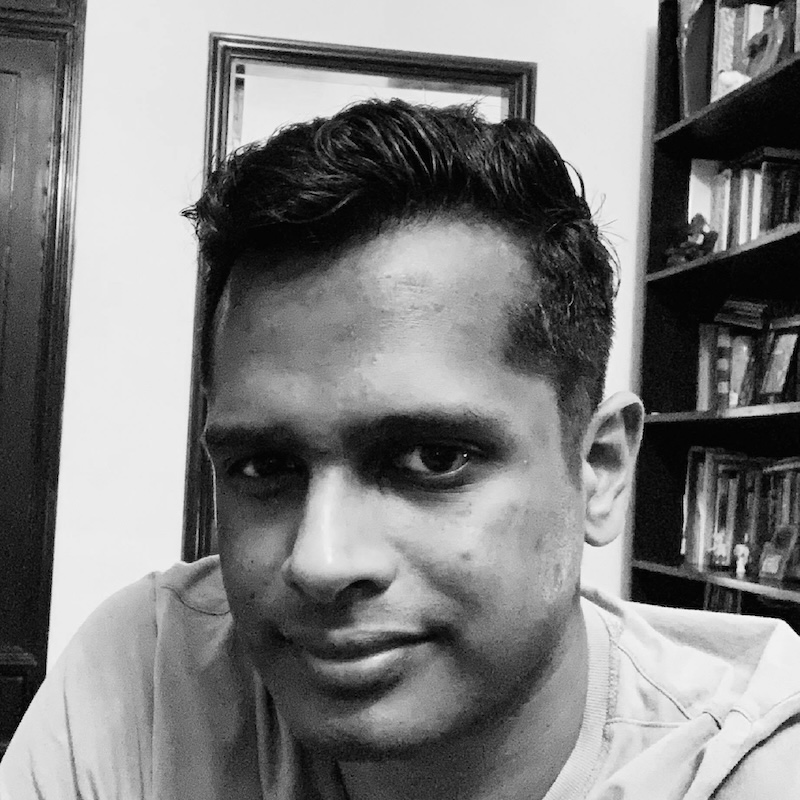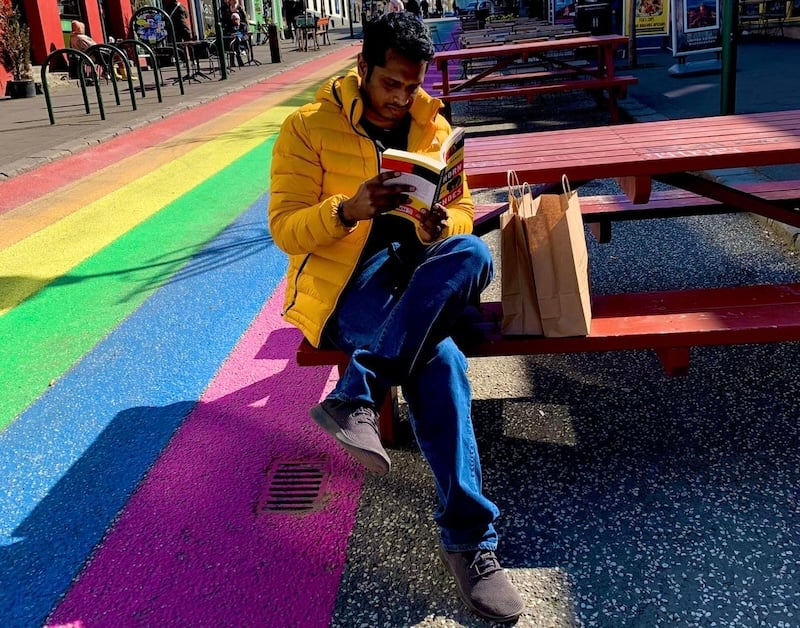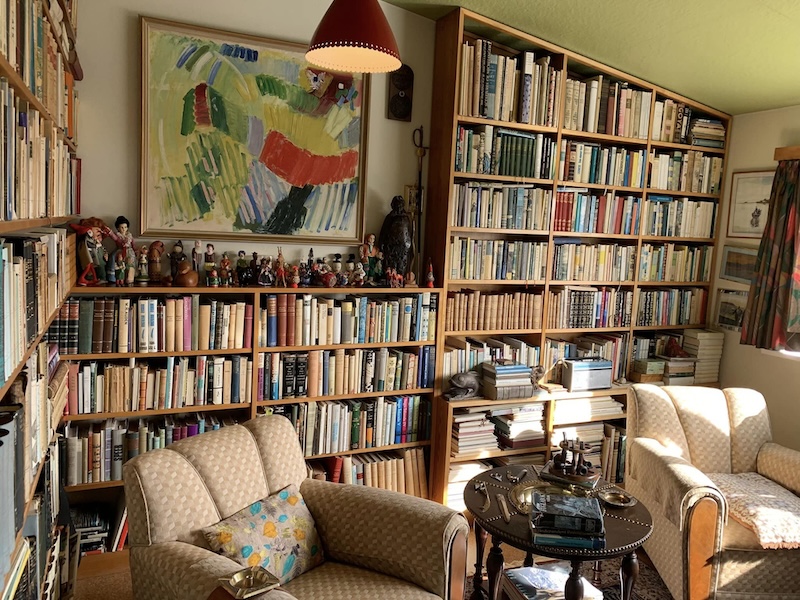Free and exclusive discount codes for hundreds of tours and & travel services in Iceland
Subscribe to instantly receive discount codes for tours, car rental, camper van rental, and outdoor clothing rental. Thank you! ❤️ Jon Heidar, Editor of Stuck in Iceland Travel MagazineEven before stepping onto the snowy tarmac in late April at Keflavik airport, my mind was in an Iceland of its own making. It is easy to fall in love with Instagram Iceland without ever going there – didn’t early settlers, upon discovering that land of waterfalls and glaciers, wonder if they had stumbled into Asgard?
First time this far north
I am a writer and journalist from Dhaka, Bangladesh, and since it was my first time this far north, I had done my homework. I thought of the film Reykjavik 101, a brilliant black comedy about an entitled man-child with a blessed schedule of partying and hook-ups in Rekyjavik’s nightlife scene.

I thought of Eliza Reid’s magnificent book Secrets of the Sprakkar, which explains why Iceland leads the world in gender equality and also excels in almost every other area. I thought of a never-ending list of envy-inducing “per capita” statistics: Iceland consumes the most coffee per capita, the most electricity per capita, the most internet per capita, has the most golf courses per capita, the most readers per capita, the most published authors per capita. And when Halldór Laxness won the Nobel Prize for Literature, this tiny island nation became the country with the most Nobel-prize winners (although just one!) per capita. It is often joked that Iceland, therefore, is the country with the most per capita records per capita. (Editors’s note: Ha! I love that!
Arriving after a long flight
My wife and I were on our way to the Iceland Writers Retreat 2023, to be held at a swanky hotel in the city centre. Because of the flight schedule, already we were cutting it a bit close to starting time, and I did not want to disappoint our hosts Eliza Reid and Erica Green, who had so graciously selected me for the Iceland Writers Retreat Alumni Award – a programme I had applied to upon my wife’s encouragement but never dreamt of winning. Nevertheless, I got the award, and was all set to go to in 2020. Then the pandemic happened, and IWR got cancelled for a couple of years. Then in 2022 I couldn’t go due to visa complications, and so now here we were, grimy and tired from a long flight, getting off the Flybus and hopping into a local bus at the BSI terminal in Reykjavik, the welcome dinner perilously close to starting at Fosshotel.
Don’t get too comfortable!
It is not easy for a Bangladeshi to get to Iceland, with visa complications and eye-wateringly expensive flight schedules, but I was giddy with excitement at being able to do this at long last. A Dhaka boy, I am used to enduring the most polluted air in the world, so when I inhaled that crisp Icelandic air, it went my head like a tonic, and I felt a little high. The smell of the moss-covered soil, the wide open vistas, and the general atmosphere of safety, trust, and freedom made me feel like the immense pressures of my life back home were now being released. Still, I had to tell myself to not get too comfortable – the retreat would be starting soon, and I would have to be showered, presentable, and on my best behaviour. Somewhere in the back of my mind, the voice of anxiety spoke up: After three years of waiting, has this whole IWR thing been built up in my head too much? Can reality ever match up to the mythically high bar I have set for the Icelandic lit-scene – a sort of writer’s sanctuary, where writers are supported and nurtured in ways I cannot dream of back home, an egalitarian environment where freedom of the press and speech are protected, where the government is accountable to the people, and no one is persecuted for speaking truth to power?

Great expectations become reality
The worries would soon melt away, swept up in the IWR proceedings – we would make it to the welcome dinner in the nick of time, where afterwards there would be a feast of readings from an amazing line-up of authors. Starting the next day would be a whirlwind of workshops. The hosts Eliza Reid and Erica Green would keep everything running without a hitch like a well-oiled machine. My Bangladeshi heart would be set free in the Icelandic air, and my pen would move freely in the writing workshops. We would take walking tours in the city, including a champagne-filled reception at Reykjavik City Hall. We would be taken to Bessastaðir, the official residence of the Head of State and First Lady, where I would have my deer-in-headlights encounter with President Guðni Th. Jóhannesson. I would gradually start to fathom why Icelandic life and writing is so tied to its nature, after trips to Thingvellir National Park, where a fault line rips the Earth in half, to Geysir, where boiling water spews out from under your feet, to the awe-inspiring Gullfoss waterfalls, where, even bundled up in layers, the wind would be freezing our faces and we would be running back to the safety of the gift shop.
Decoding Laxnes
The Halldór Laxness house, though, was an experience hard to quantify. We know that place makes the writer and writer makes the place, and in a country bursting with literary aspirations, Laxness stands as Zeus in the pantheon of Icelandic literature. His house, just a few miles east of Reykjavik, is like something out of a dream, crammed with books and art, surrounded by unspoiled land. Later when strolling the streets of Reykjavik and checking out bookstores, out of a sense of obligation I picked up Laxness’s tour-de-force Salka Valka. Back home in Dhaka, the intimidating volume sat at my desk for nearly a year, until I finally decided it was time and dove it. Perhaps it was the upcoming ten-year anniversary of IWR that created some sense of urgency for a return to Iceland.

Reading transcends time and space
Reading Laxness in Dhaka, I was once again reminded of the power of writing, and how it can transcend time and space. Salka Valka is an epic tale of a fiercely independent young woman fighting against the mores of her time. In true egalitarian Icelandic spirit, the story is about gender equality, social justice, and the need to tear down a structure when power is too concentrated in a single hand. I had thought Laxness might be tough to get through, like the classics often are, but I was wrong. The connections to other more contemporary Icelandic fiction I have read, from the gem of a short story collection The Book of Reykjavik, to Sigríður Hagalín Björnsdóttir’s superb The Fires, I could sense Laxness’s influence, rooted in a distinctly Icelandic love of nature, community, and the unrelenting drive to make the best of it all, because this beautiful-yet-daunting rock kissing the North Pole is a gift, but one that demands to be taken care of.
I come from Dhaka, Bangladesh, one of the densest, most polluted, most chaotic cities in the world. My hometown has shaped me, and so I could never write like the brilliant children of Laxness. But writing is not just about what you know, it is also about what you can imagine … and I don’t need to imagine Iceland – it really is a place I remember, and cannot wait to return to.
About the author
Abak Hussain is a writer and journalist based in Dhaka, Bangladesh. He is currently Contributing Editor at MW Bangladesh, and formerly Editor of Editorial and Op-Ed at Dhaka Tribune. He is a winner of the Iceland Writers Retreat Alumni Award. His review of Eliza Reid’s Secrets of the Sprakkar can be found here https://www.thedailystar.net/daily-star-books/news/why-iceland-masterclass-equality-3265936.



